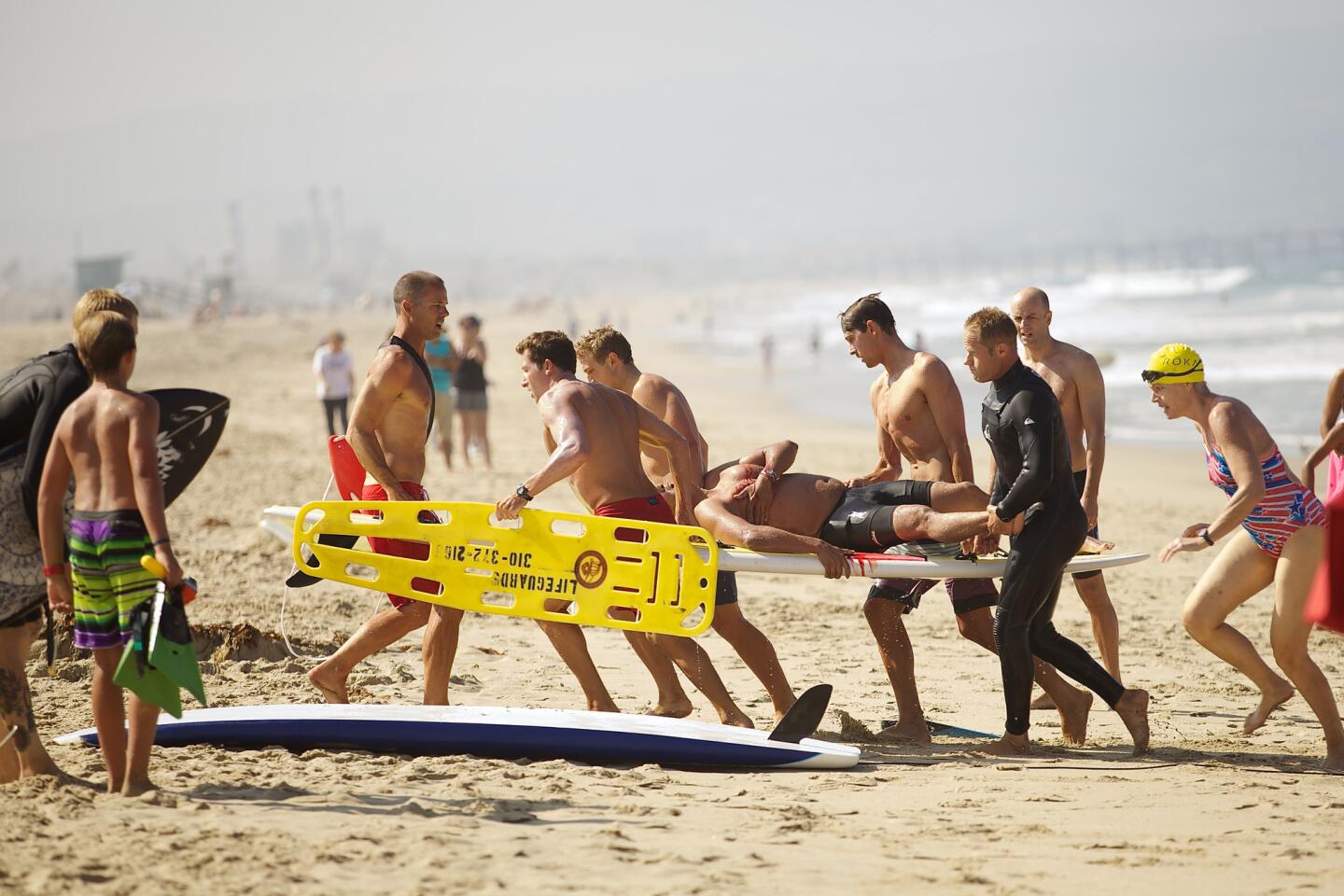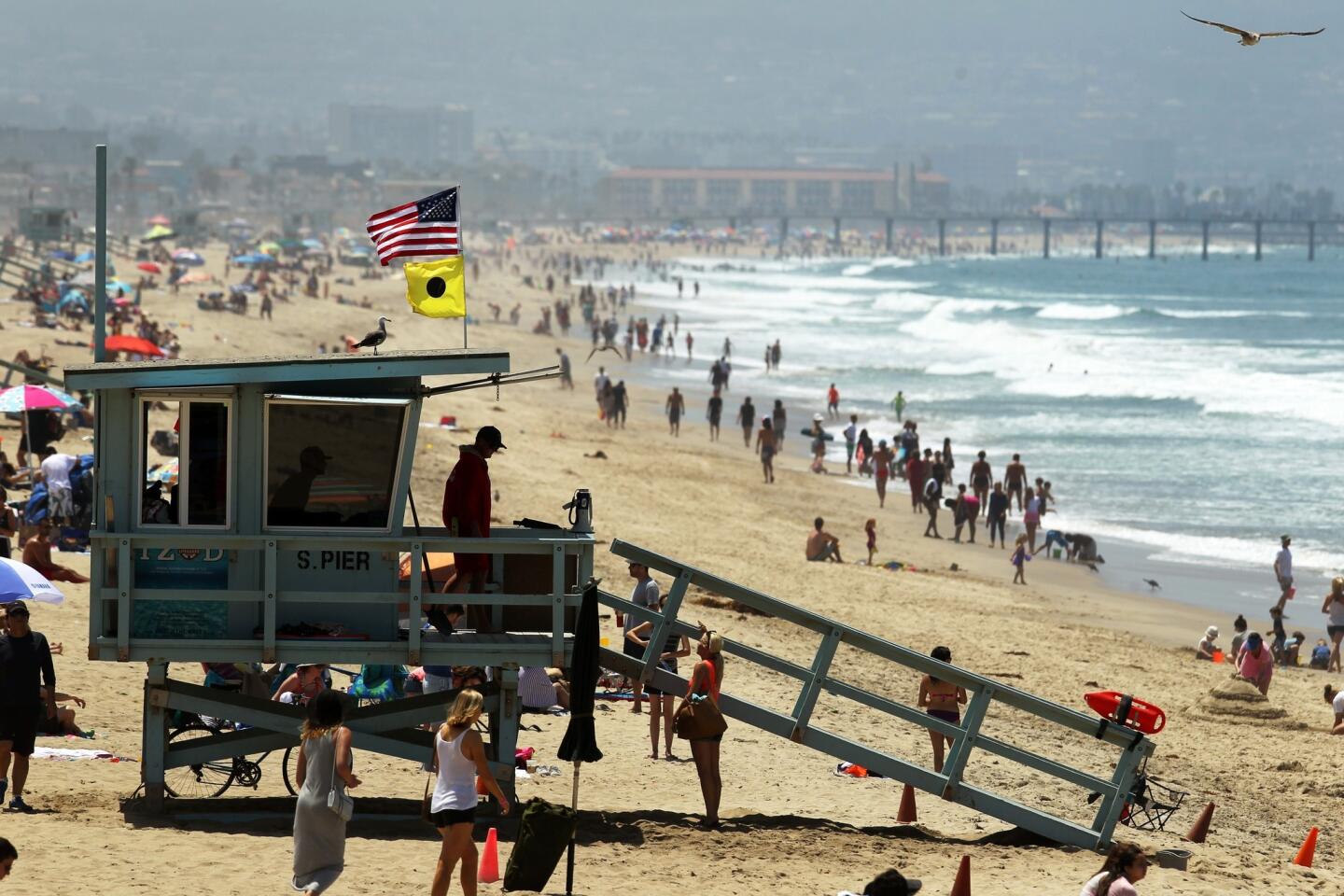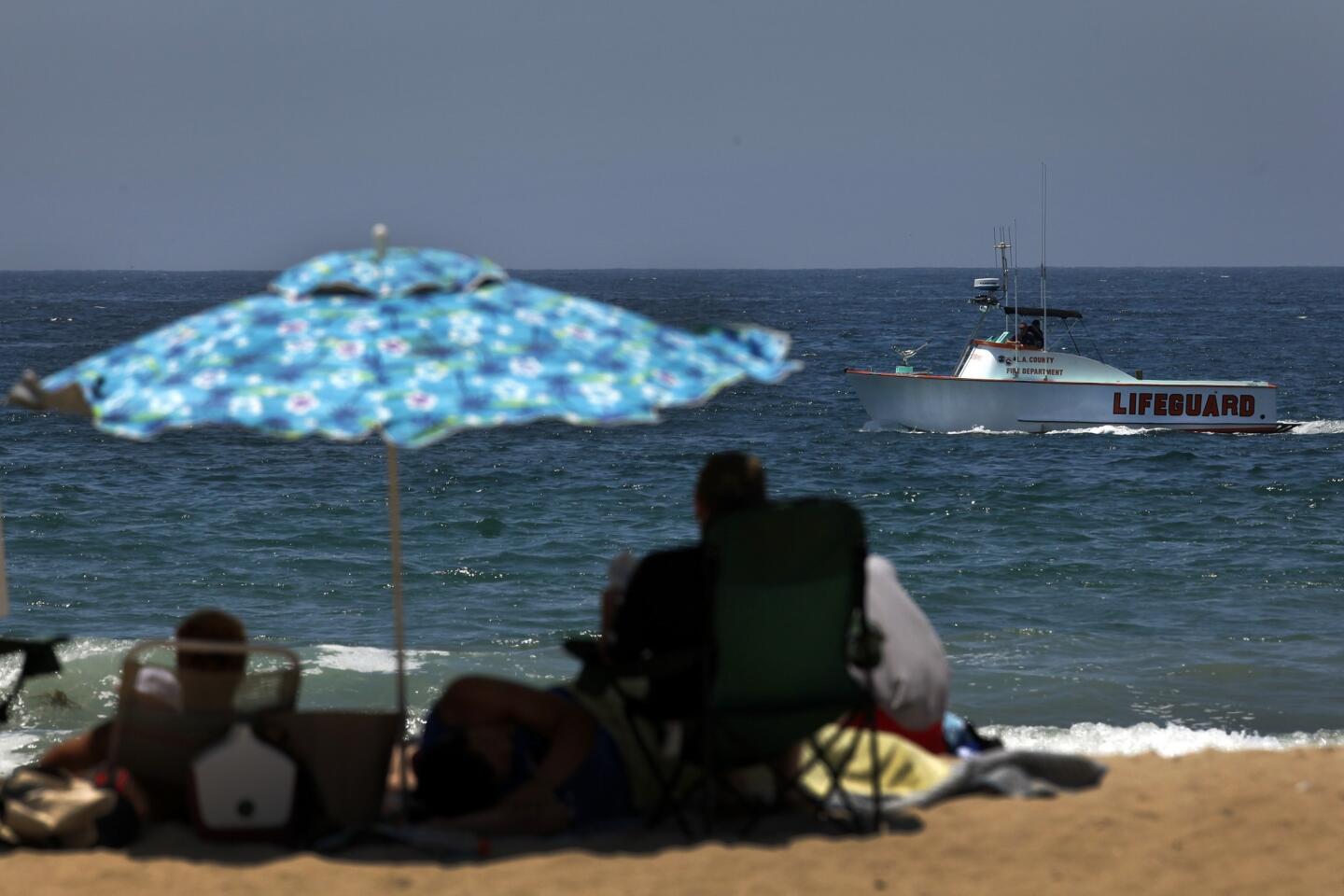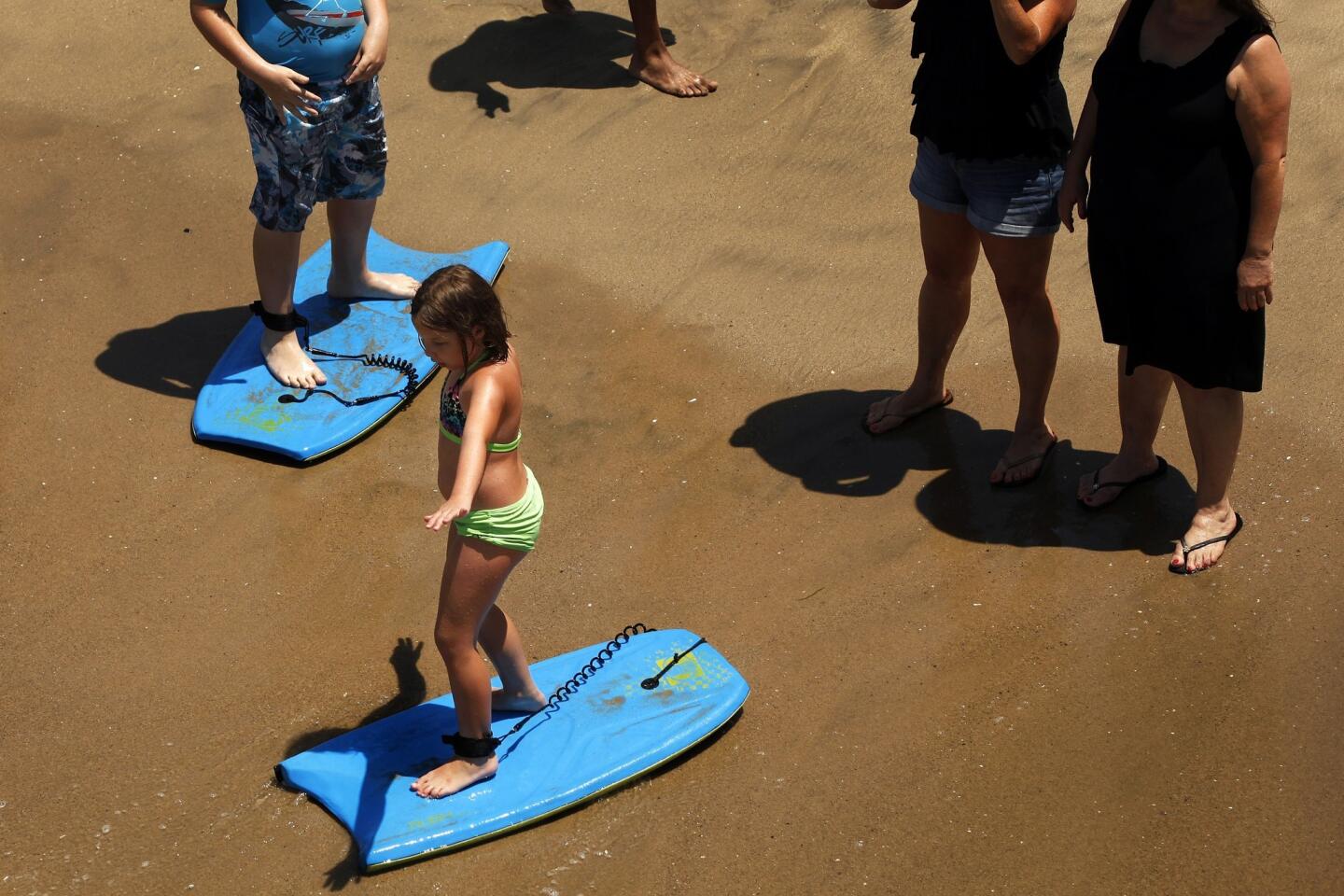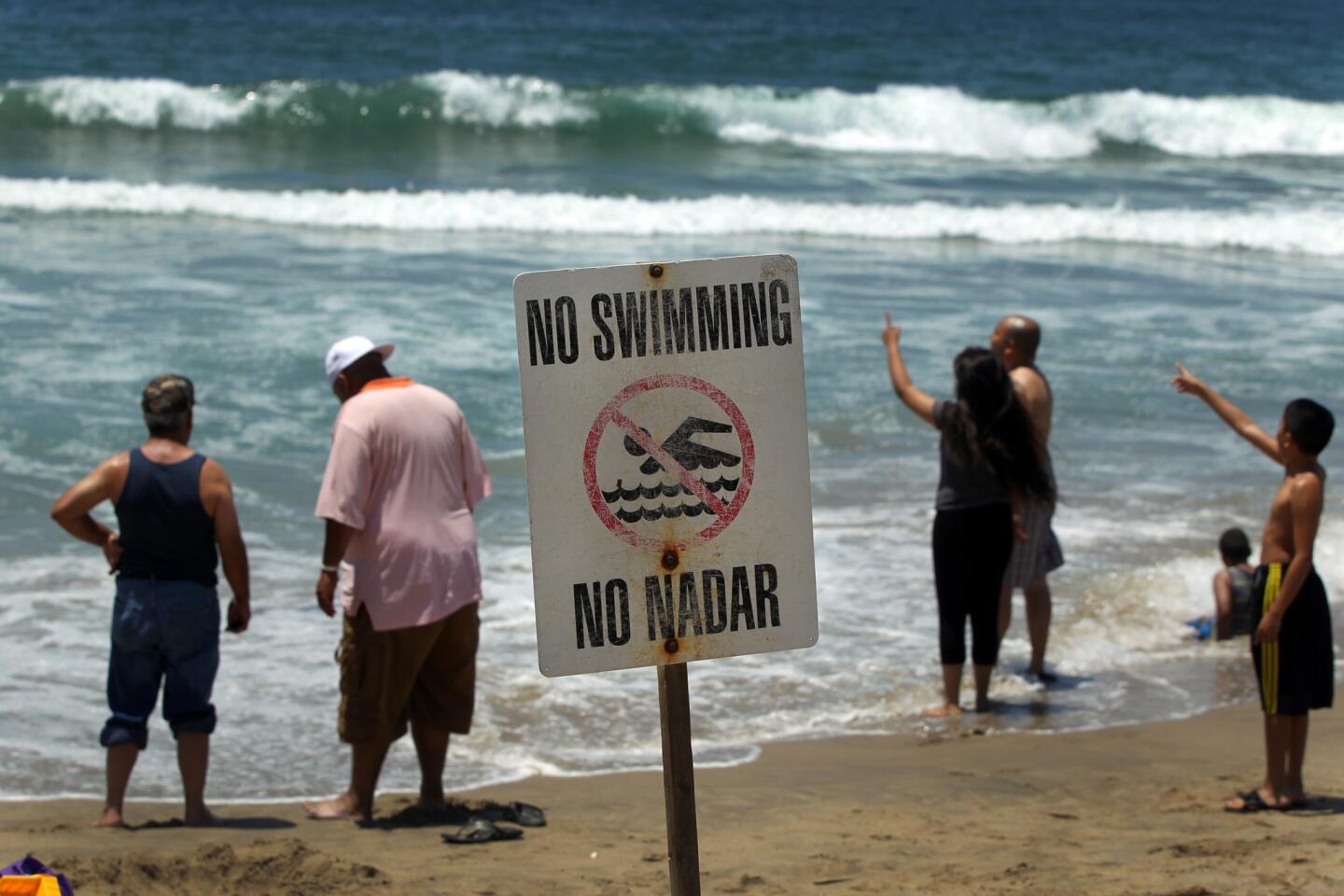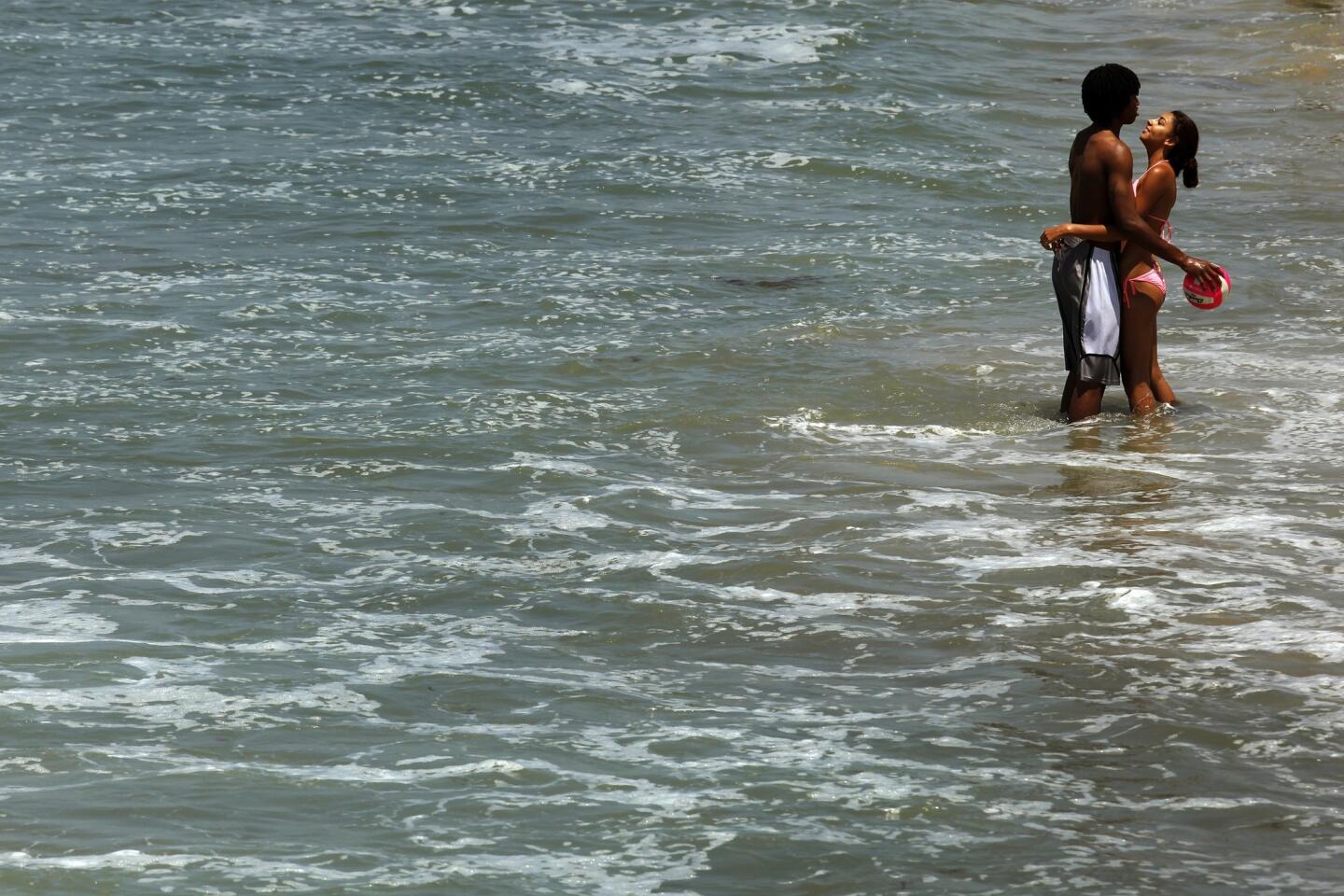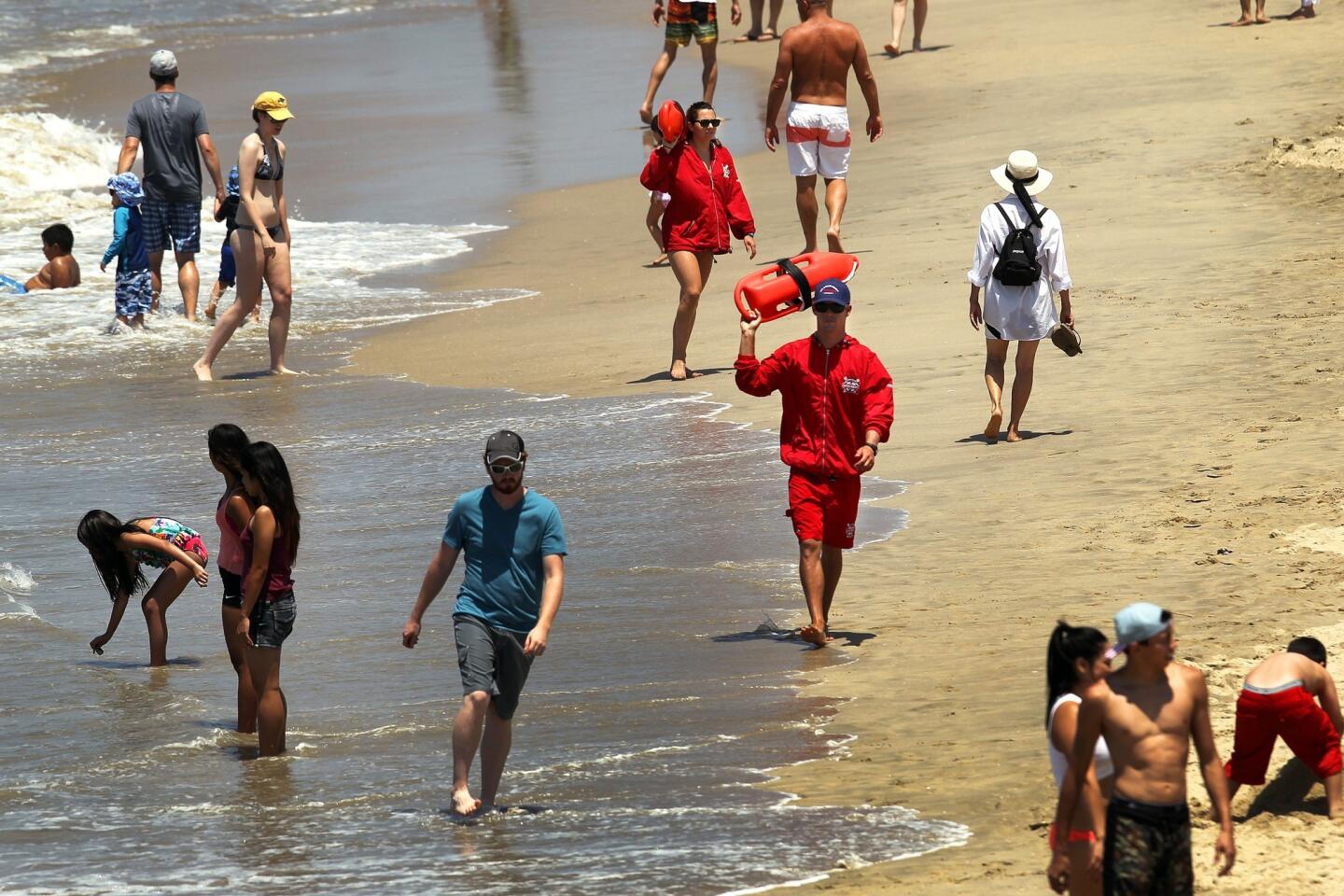Shark was hooked on line for nearly an hour before attack
- Share via
The shark that bit a swimmer near the Manhattan Beach pier Saturday morning was hooked by a fisherman on the pier for nearly an hour and had become increasingly annoyed as it tried to free itself, authorities said.
“He was trying to get off the line,” said Capt. Tracy Lizotte, a Los Angeles County lifeguard at the beach. “He was agitated and was probably biting everything in his way and then the swimmer swam right into the shark’s line.”
Witnesses told authorities that the seven-foot juvenile great white shark bit the anchovies-and-sardines bait on the hook a fisherman had thrown into the water from the edge of the Manhattan Beach Pier. They said the shark was hooked for about 45 minutes and was thrashing around in the water when he bit the swimmer about 9:30 a.m.
The unidentified victim, described as a long-distance swimmer between 35 and 40 years of age, suffered a single bite on the right side of his rib cage. He was transported to Harbor UCLA Medical Center.
Lizotte said it’s not uncommon for sharks to swim in waters past the pier’s edge.
“That’s where they live,” Lizotte said. “It’s their home.”
He stressed that sharks usually avoid people and said this case was unique because the animal had gotten agitated.
“This was an accident,” Lizotte said.
Great white shark sightings are on the rise at some Southern California beaches, especially in the waters off Manhattan Beach, a popular spot for surfers and paddle boarders.
Many of them are juveniles learning to feed and fend for themselves, said Chris Lowe, a marine biology professor at Cal State Long Beach. Researchers are still trying to figure out why Manhattan Beach is so popular for the predators.
Beachgoers sometimes paddle out and record the predators circling in the water underneath their boards, posting the encounters to YouTube. Wildlife officials have asked them to be more careful. Sharks will attack if they feel threatened, and the oblong silhouette of a paddle boarder or surfer can be mistaken for their primary prey, seals and sea lions.
There have been 13 shark attack fatalities in California waters since 1950.
The most recent came in October 2012, when a great white shark approximately 15 feet in length attacked Francisco Javier Solorio Jr. as he was surfing off a beach in Santa Barbara County. Solorio, 39, suffered a massive torso wound and died shortly after he was brought ashore.
In 2010, 19-year-old Lucas Ransom was pulled into the water by what experts thought was a great white shark as he body boarded on Surf Beach in Santa Barbara County. His leg was torn off and the UC Santa Barbara student died from his injuries before reaching shore.
In 2008, Dave Martin, a 66-year-old triathlete, was swimming off Solana Beach near San Diego when he was attacked and killed by what experts said was a great white shark at least 12 feet in length.
Worldwide, shark attacks have been steadily increasing over the last century, a reflection of the ever-increasing amount of time people spend in the ocean, according to a report from the Florida Museum of Natural History at the University of Florida.
There were 72 unprovoked shark attacks around the world in 2013, the report said. Of those, 47 attacks occurred in the United States, with just one in California. About half of people bitten by sharks in 2013 were surfers, and most fatal shark attacks involve great whites.
More to Read
Sign up for Essential California
The most important California stories and recommendations in your inbox every morning.
You may occasionally receive promotional content from the Los Angeles Times.
